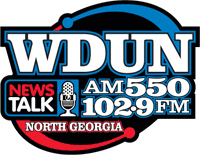Annotated Bibliographies
- Herndon Lee
- Mar 15, 2017
- 3 min read
These annotated bibliographies are from the websites that have helped me in my research.
1. Broadcasting, Radio And Television
This article tells all about the history of broadcasting. The history of broadcasting is very important to me because this is my passion and I hope to be doing it in my future. The article first starts out by talking about how the invention of the radio came to be, and how it was first used to get really important information to people. It was mainly used in war times. Soon everyone was listening to the radio to listen to music, news, and other stuff. The radio became the past to the present TV. Now people could actually see the news and different TV programs. Which leads to today when we have over 1000 different channels to surf on the radio and TV.
"Broadcasting, Radio And Television." Funk & Wagnalls New World Encyclopedia (2016): 1p. 1. Funk & Wagnalls New World Encyclopedia. Web. 17 Nov. 2016.
The source of my second annotated bibliography is Morrison, Geoffrey. "ATSC 3.0: What You Need To Know About The Future Of Broadcast Television". CNET. N.p., 2017. Web. 1 Feb. 2017. This site has a lot of useful information on what my capstone project will cover. This article goes into deep detail about the revolution of TV broadcasting, and how even today we have seen a brand new type of resolution. The author explains that in last 15 years we have seen 3D and 4K come to our televisions in our home. He goes one to say that this is just the beginning of a new revolution of broadcasting and there is still much to improve for the TV audience. Some great quotes from this article is the author stating that this is only the beginning so a new revolution of broadcasting and how the people 15 years ago would have never have thought to see how far TV and broadcasting has come.
This site is credible because it is written by someone who has been studying the future of broadcasting, and who knows all the different types of broadcasting companies who help improve the revolution of the TV and so much more. This author may not be known to a lot people, but he does know his information about TV and the broadcasting future. I’m going to use this site in my main points of research. If people don’t know the revolution of TV and other things we are at right now then how will they understand the future of broadcasting? People have to understand what’s going on today to see what tomorrow will bring.
Morrison, Geoffrey. "ATSC 3.0: What You Need To Know About The Future Of Broadcast Television". CNET. N.p., 2017. Web. 1 Feb. 2017.
This site will be a great source for my capstone project. The person that was interviewing Tony Emerson in this article is a perfect source for me. He knows a whole lot about technology right now and knows how it will hopefully be in the future. “Video Breakdown; this is a great example of where machine learning can help reduce costs and bring content to market a lot faster.” This just means that looking at what we can do with video today will help up by looking to the future. And sometimes that is all what we can do to see the future of broadcasting. The other thing that he said in the interview was to listen to the people’s wants and need for TV. He was predicting that in the future that if someone missed their favorite show there would be a TV station that would give a 30 second to 1 minute summary of what happened in the episode.
The future of broadcasting is not all prediction, there are people out in the business world that have a good speculation of how it will be. The people can decide what the future will look like, because it is in all of our hands of how the future of broadcasting will look.
Richards, Elliot. "What Is The Future Of Broadcasting?". Knect365.com. N.p., 2017. Web. 28 Mar. 2017.













Comments